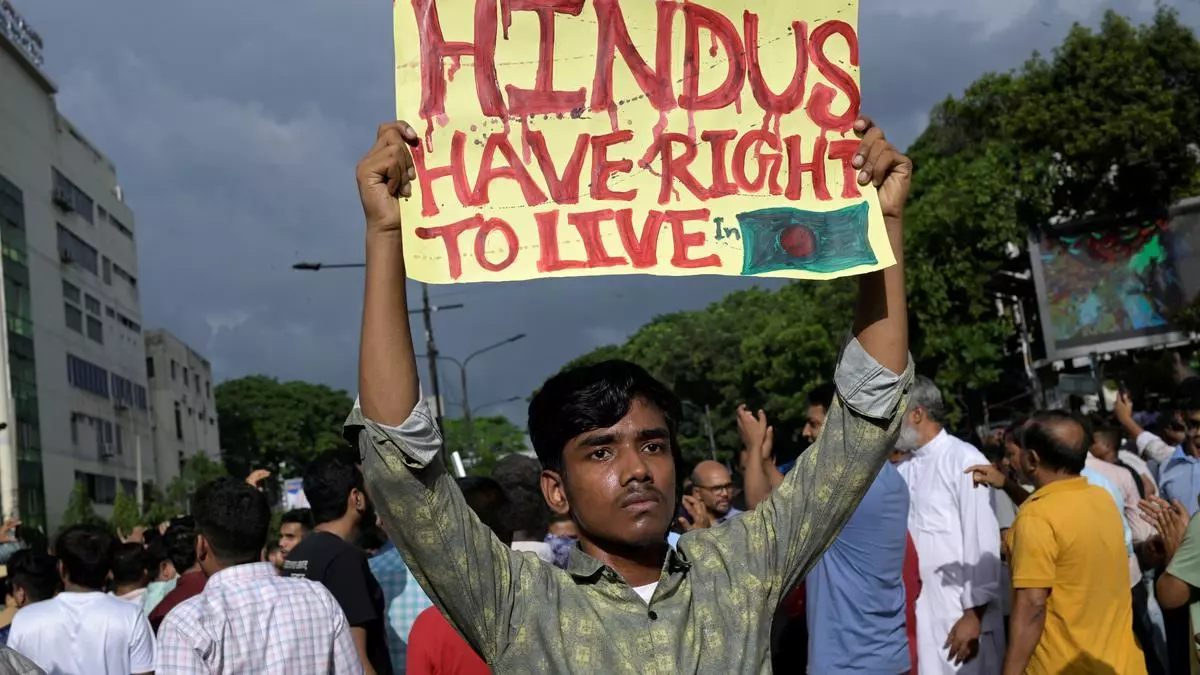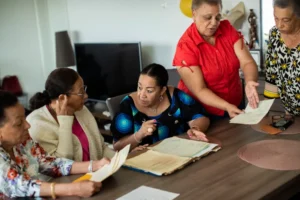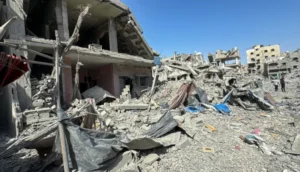In response to rising concerns over the safety and well-being of Hindus in Bangladesh amid ongoing atrocities, Indian Prime Minister Narendra Modi has announced a significant move to provide humanitarian aid and support for refugees. This comes at a time when reports of violence, discrimination, and persecution against Hindus in Bangladesh have sparked international outrage. India’s decision is seen as a major diplomatic step aimed at addressing the crisis, ensuring the safety of minorities, and upholding human rights.
Background: The Situation of Hindus in Bangladesh
Bangladesh, a predominantly Muslim nation, has long been home to a significant Hindu minority. However, in recent years, the community has increasingly faced violence and persecution, particularly in the wake of political tensions and religious extremism. Reports have emerged of attacks on Hindu temples, homes, and individuals, with incidents of mob violence and forced displacement becoming more frequent.
The most recent wave of attacks has left many Hindus in fear for their safety. Hindu religious leaders have been targeted, homes looted, and temples desecrated. The authorities in Bangladesh have been criticized for not doing enough to protect religious minorities or hold perpetrators accountable. Despite the country’s secular constitution, the situation for Hindus continues to deteriorate, raising alarms within the international community.
India’s Humanitarian Response: A Step Toward Protecting Minorities
In light of these escalating atrocities, Prime Minister Narendra Modi has decided to take bold action to help the Hindu community in Bangladesh. India has long been a protector of its neighbors’ religious minorities, and this latest decision signals a firm commitment to ensuring that those facing violence and persecution are not left to suffer in silence.
The Indian government will be sending humanitarian aid to the affected regions in Bangladesh, including food, medical supplies, and shelter for displaced Hindu families. The aid package will also include financial assistance to help rebuild damaged temples and homes, providing immediate relief to those in dire need.
In addition to sending aid, Prime Minister Modi has also announced that India will facilitate the resettlement of Hindu refugees who have fled Bangladesh due to the violence. The government will expedite the process for refugees to seek asylum in India, offering them protection and a safe haven.
This move comes amid growing calls for India to take a more active role in addressing the crisis faced by Hindus in neighboring Bangladesh. While India has historically been cautious in intervening in the internal matters of its neighbors, the recent violence has pushed the government to take a more decisive stand on behalf of its religious community.
Muhammad Yunus to Advocate for International Attention
In a related development, renowned Bangladeshi social entrepreneur and Nobel laureate Muhammad Yunus has been tasked with leading efforts to raise global awareness about the plight of Hindus in Bangladesh. Yunus, known for his pioneering work in microfinance and social entrepreneurship, has long been an advocate for social justice and human rights.
Yunus has agreed to collaborate with international organizations, human rights groups, and the Bangladeshi diaspora to pressure the government of Bangladesh to take more significant actions to protect its Hindu minority. His efforts will also focus on engaging the United Nations and other global institutions to provide diplomatic pressure on Bangladesh to end the violence and discrimination against Hindus.
While Yunus has faced his share of controversies in the past, his reputation as a champion of the underprivileged and his influence within both Bangladeshi and global circles make him a key figure in the push for international intervention in this humanitarian crisis.
The International Community’s Role in Addressing the Crisis
The Indian government’s decision to provide aid and support to the Hindu community in Bangladesh has sparked widespread debate about the role of the international community in addressing religious persecution. Many human rights organizations have expressed concern over the worsening situation in Bangladesh, calling for greater accountability and protection for minority groups.
The United Nations and other international bodies are being urged to take a stronger stance on the human rights violations occurring in Bangladesh. Humanitarian aid, political pressure, and diplomatic measures are seen as essential tools to address the violence and ensure that religious minorities are no longer targeted or oppressed.
Moreover, global advocacy networks are working to shine a light on the situation, mobilizing resources and support for those affected by the atrocities. There is also growing pressure on the Bangladeshi government to uphold its commitments to religious freedom and equality under international law.
Conclusion: A Turning Point for India-Bangladesh Relations?
India’s decision to send aid and facilitate the resettlement of Hindu refugees from Bangladesh marks a significant step in the protection of religious minorities in the region. This move not only reflects India’s commitment to safeguarding its own citizens but also sends a strong message about the importance of upholding human rights on a global scale.
As tensions between religious communities continue to escalate in Bangladesh, Prime Minister Modi’s bold decision offers hope to those seeking refuge from violence and persecution. By sending humanitarian assistance and collaborating with international advocates like Muhammad Yunus, India is positioning itself as a key player in the fight for religious freedom and protection of minority rights in South Asia.
The coming months will be critical in determining how Bangladesh responds to the crisis and whether the international community can effectively address the rising tide of religious intolerance. In the meantime, India’s humanitarian efforts stand as a beacon of hope for Hindus suffering under persecution, and a call to the world to not turn a blind eye to the atrocities unfolding in Bangladesh.




